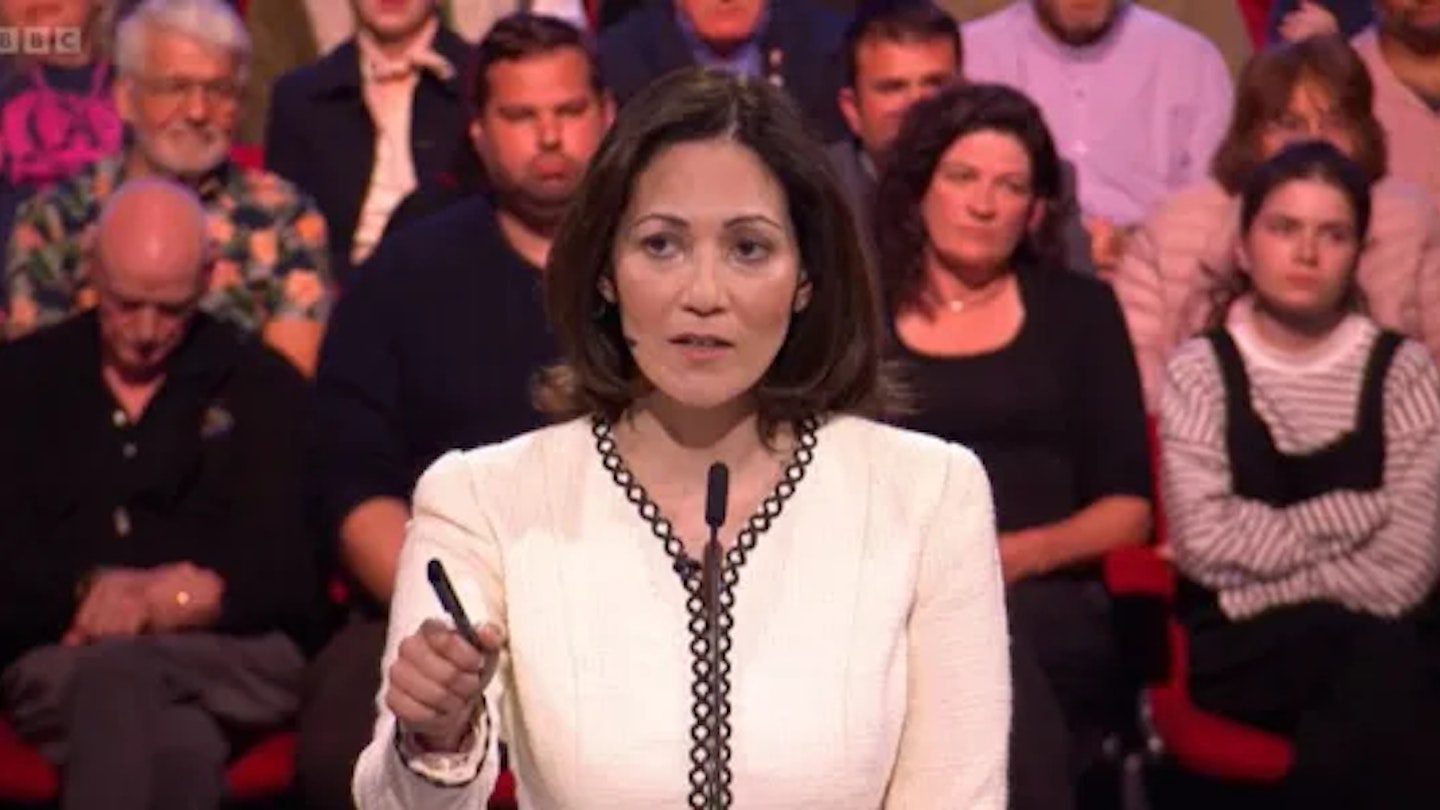When I’m right in the thick of it, hosting a debate, lights blaring down and leaders before me, there’s a hard balance to strike: I’m listening intently to the answers, contrasting them to the question, there may be points that I need to clarify and I’m also thinking about the amount of time people are speaking for. The first debate I presented in this election was the seven-way, which was 90 minutes’ long. Tonight is 75-minutes, but the time ticks down so fast. It’s a real juggling act with all of these elements in the mix.
Anyone who doesn’t prepare properly for a job like this would do themselves and the audience a great disservice. But to an extent, your preparation is years-long. It's got to be a part of you and your journalistic approach, because you can't conjure these skills out of a hat.
Before it starts, I will probably have called into the dressing rooms to say hello. Last time, all the participants were in separate rooms with their teams, probably cramming in prep right up until the last moment, and some wanted to talk about the format. Then, and now, they have no idea of the questions that are coming. It’s testing, and rigorous, but you do see people’s natural skills this way. Once off air and off the stage I will need to decompress. These are amazing but intense moments to be a part of and you can feel drained afterwards.
It’s been striking this time to see how women have been at the forefront of hosting so many debates and other key election coverage. When I joined the BBC more than 20 years ago, the idea that women would be so well represented in prominent positions felt very far away. But we’re not seeing people plucked out of nowhere for these roles. There’s a bigger story which is about women being recognised for knowledge and skill, particularly in political journalism. Julie Etchingham hosted her first TV leaders’ debate in 2015, my first was in 2017, Beth Rigby is both political editorand leading presenter at Sky News, while at the BBC Laura Kuenssberg will be at the forefront of election night and Fiona Bruce has hosted Question Time specials. In the lineups of politicians, too, women are better represented. For the BBC 7-way debate we invited leaders or leading figures and we ended up with four women and three men - though overall, of course, more men than women lead our political parties.
For me, tonight, I’ll be looking at two leaders, Rishi Sunak and Keir Starmer, and I'd like viewers to feel they have seen character as well as policy, the human qualities of leadership - a sense of their natural responses and how they might be if you met them in real life. TV cameras can capture every glance or shift of expression. It's as close as most people are going to get to them.
The questions they’ll face are primarily from the live audience. I'm a conduit - there on behalf of the questioners, to make sure they get answers, and to get as much as we can out of these two people on behalf of everyone watching. These formats are, I hope, helpful in reaching people who might not have consumed much else from the campaign. It’s a peak evening slot and just over a week left of the campaign to run.
On election night itself, I won’t stay up because I’ll be presenting the Today programme bright and early the next morning. I’ll be in bed by 8pm, before the exit poll comes out. That might sound odd but once you see those indications emerge at 10pm it’s very hard to sleep. I know the difference in how my brain feels if I've had five rather than six hours of sleep and the morning of the 5 July will be extremely intense. So I will force myself to bed: hot bath with bath oils and into my pyjamas. When my alarm goes off at 2am I’ll tune into the live election coverageand creep around as usual for early shifts, trying not to wake my husband. Obviously there will be a lot to take in. We have a live election database, a system that results get fed into, as well as analysis from election guru Professor Sir John Curtice.
Working in news has for me always meant odd and anti-social shifts, which I accepted long ago as part of my working life. Sometimes my husband and I will be little more than ships in the night for a few days at a time. But Today Programme presenting shifts can also be child-friendly: when my sons were little I used to have a nap after work and then pick them up from school, which so many working parents can’t do. This last month has had a different and unusual mix of demands on me, in that the election campaign came just as a book I have worked on for the last three years was being published. But right now, the main and primary task is the Prime Ministerial debate. I’ll be breathing again by 9.30pm tonight.
